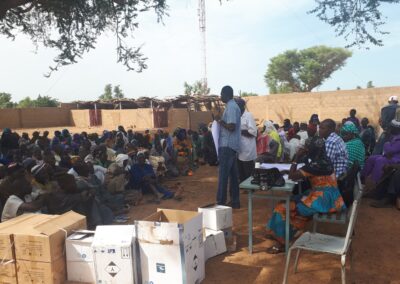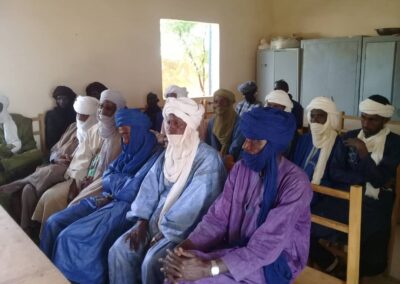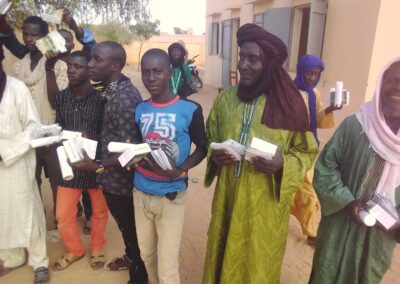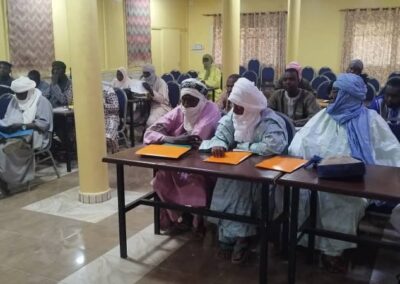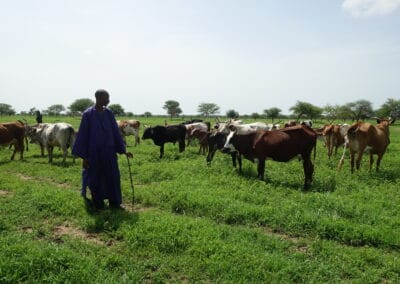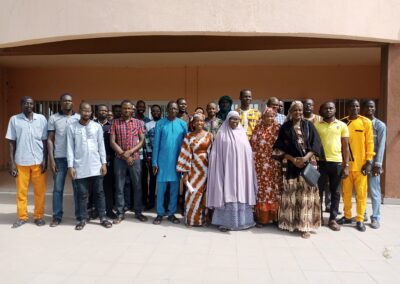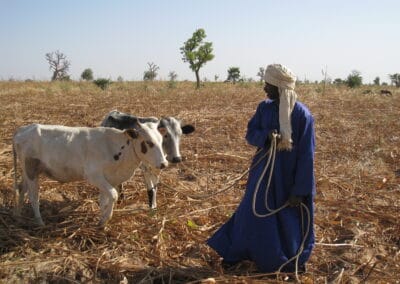Emergency destocking in Mali in the drought summer of 2018 (FAO Destockage)
Project Overview

Country
Mali
Project name
FAO Destockage
Project status
Completed
Duration of the project
| Start: | 12.07.2018 |
| End: | 30.11.2018 |
| 4 months |
Budget
CHF 46’000
Donors:
FAO
Project area
Topics
Tags
Background
In 2018, about 1’600’000 cattle, 2’162’466 sheep and 2’743’604 goats were at risk. Animals losses represent a huge loss of income for pastoralist households and negatively impact their livelihoods. In addition, animal carcasses not disposed of correctly represent a risk in terms of facilitating animal epidemic’s propagation.
Project:
In the process of destocking the weakest animals are removed from the herd before they die or pose a risk to public health. In our project in Mali the identified animals are slaughtered, and the edible meat is distributed in priority to children.
Through this emergency intervention, herd size is reduced. It is more valuable to have a small herd in good health than to lose a large herd due to disease, lack of fodder or water scarcity. Once the drought is over, pastoral households can rely on healthy animals and renew and increase herd size through breeding.
Through this emergency intervention, herd size is reduced. It is more valuable to have a small herd in good health than to lose a large herd due to disease, lack of fodder or water scarcity. Once the drought is over, pastoral households can rely on healthy animals and renew and increase herd size through breeding.

